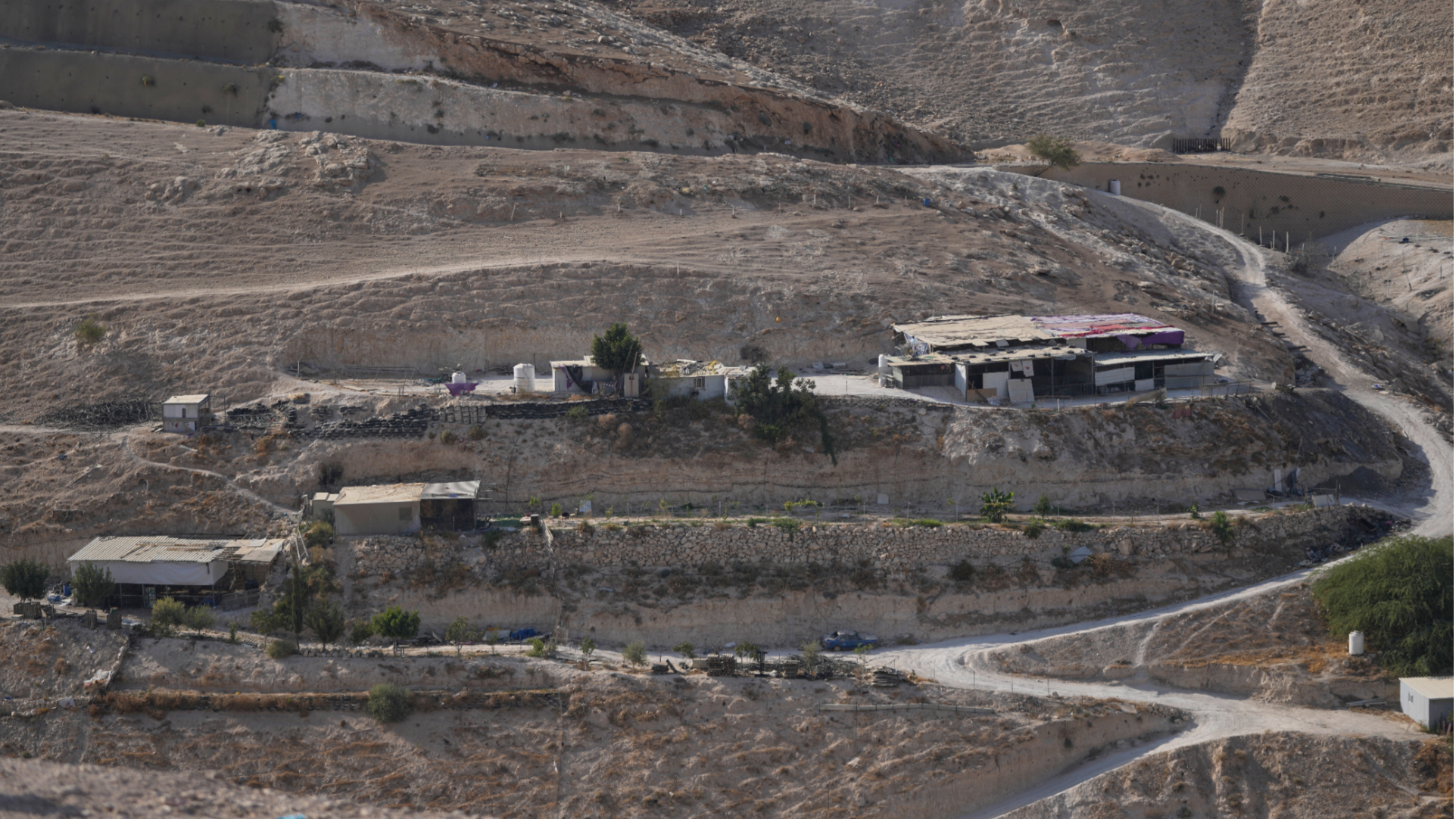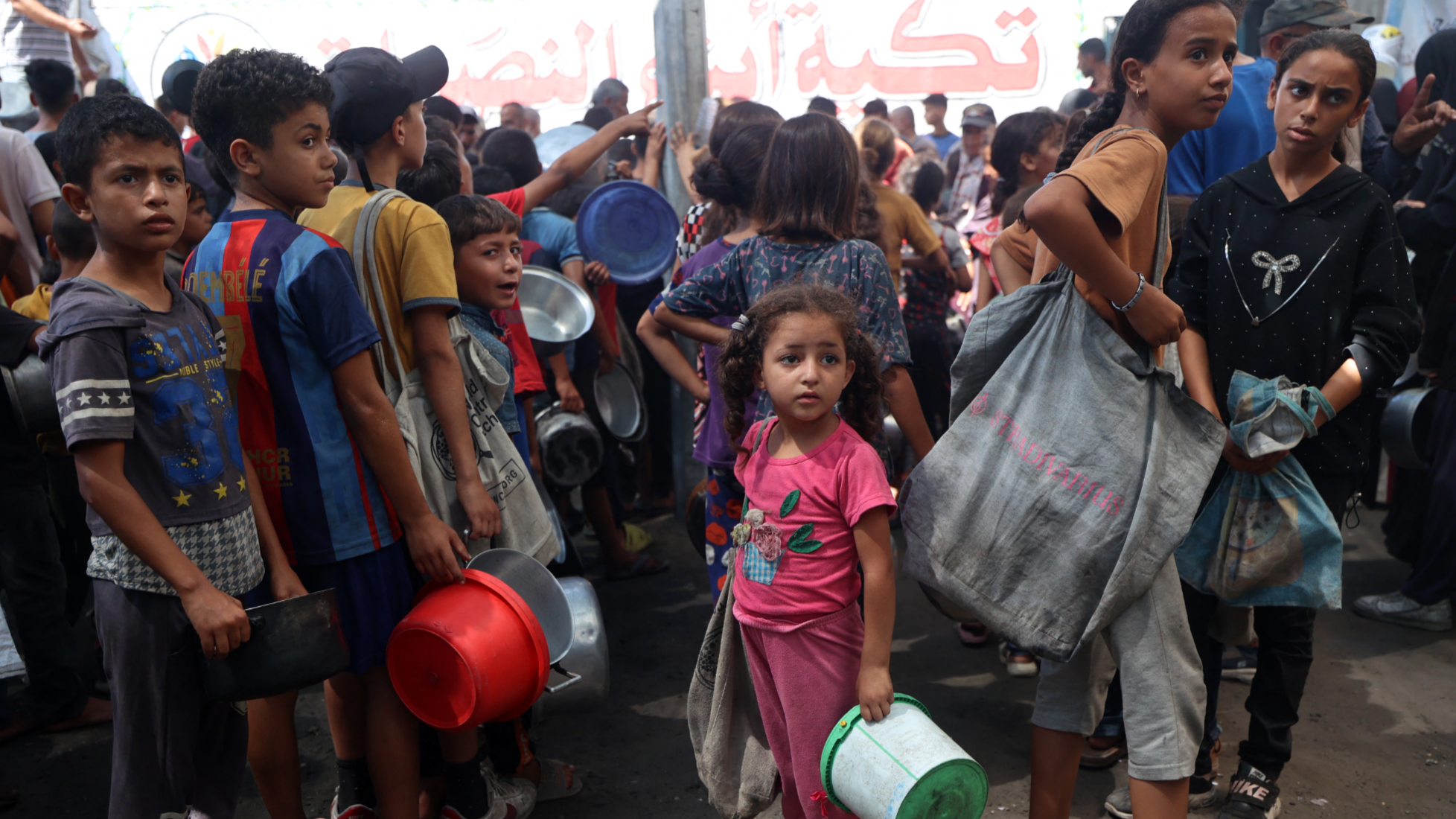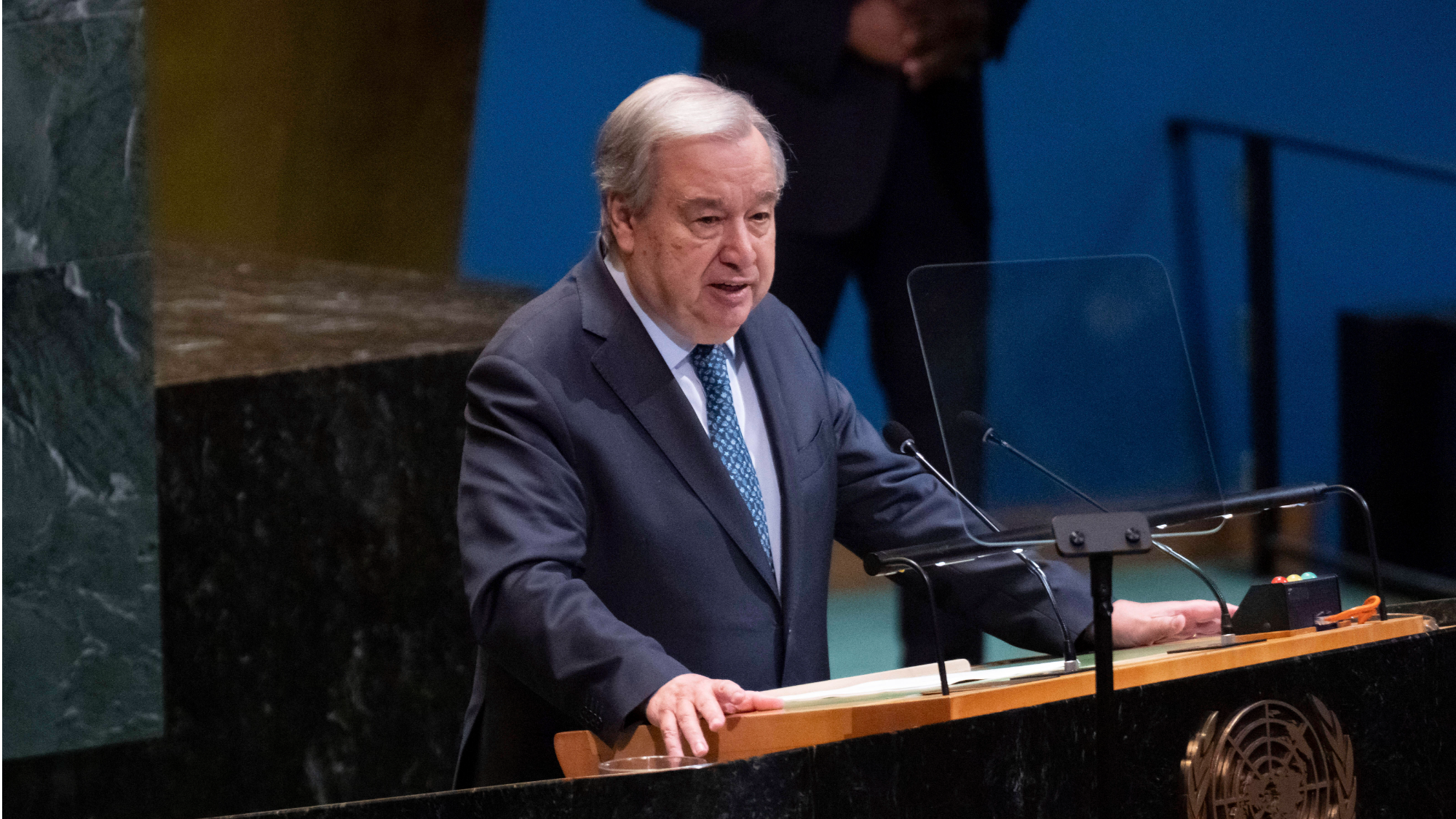
WASHINGTON/JERUSALEM/LJUBLJANA - US President Donald Trump said on Thursday that he will not allow Israel to annex the West Bank, a "red line" drawn by Arab leaders amid efforts to seek a ceasefire deal in Gaza.
"I will not allow Israel to annex the West Bank. I will not allow it. It's not going to happen," Trump told reporters in the White House. "It's been enough. It's time to stop now," the president added, saying he had spoken to Israeli Prime Minister Benjamin Netanyahu.
Trump promised Arab and Muslim leaders that he would not allow the annexation during a closed-door meeting on the sidelines of the UN General Assembly on Tuesday, a key promise in a 21-point plan presented by the Trump administration for ending the Israel-Hamas conflict and establishing a non-Hamas body to govern Gaza, Politico reported.
The latest plan comes as international pressure mounts on Israel amid a worsening humanitarian crisis in Gaza. Leaders and senior officials from Saudi Arabia, the United Arab Emirates, Qatar, Egypt, Jordan, Turkey, Indonesia and Pakistan attended the meeting.
ALSO READ: 'Unbearable' Gaza toll sparks global outrage
The United Arab Emirates has previously warned that any Israeli move to annex would be a "red line." However, the report, citing a source familiar with the talks, said that a ceasefire to end Israel's nearly two-year war against Hamas in Gaza was nowhere close to fruition, despite Trump's assurance.
While meeting with visiting Turkish President Recep Tayyip Erdogan in the White House earlier on Thursday, Trump told reporters that "a lot was determined in that meeting."
"We're close to getting some kind of a deal done," he said, "we want to get the hostages back... We want them all back at one time."
The Arab leaders asked the following conditions to be met: Israel will not annex parts of the West Bank or Gaza, not occupy parts of Gaza, not build settlements in Gaza, and Israel will stop undermining the status quo at the Al-Aqsa Mosque, and humanitarian aid to Gaza will immediately increase, said the report.
Meanwhile, Israeli troops advanced further into Gaza City on Thursday, as Prime Minister Benjamin Netanyahu vowed to prevent the establishment of a Palestinian state before departing for New York to address the United Nations General Assembly.

'700,000 have fled Gaza'
Israeli forces continued their offensive across the Gaza Strip, carrying out strikes on 170 separate targets in the past 24 hours. Footage showed tanks in southwestern Gaza City, where heavy bombardments have triggered a mass exodus of residents.
About 700,000 Palestinians have fled Gaza City as Israeli forces intensified their ground and air assault on the enclave's largest urban center, the Israeli military said Thursday.
Military spokesman Effie Defrin told reporters that "about 700,000 residents have evacuated" since mid-August, when Israel launched its new attack on Gaza City. He said they moved to what Israel calls "the humanitarian area" in southern Gaza, without specifying the source of the estimate.
Relief diminishes
With hundreds of thousands of civilians fleeing the Gaza City military offensive, hundreds of thousands of Palestinians remain amid eroding relief operations, UN humanitarians said on Thursday.
The UN Office for the Coordination of Humanitarian Affairs (OCHA) said intensified strikes against residential buildings and infrastructure continue to cause heavy casualties and lead to displacements.
"This is threatening the continued operation of life-saving services, including ambulances, health facilities, nutrition treatment support and community kitchens," said OCHA. "Civilians in Gaza City and the north (of the Gaza Strip) require sustained humanitarian support at scale, which in turn requires continued access and reliable safety guarantees for aid workers."
However, the office reported that all attempts by the United Nations on Thursday to coordinate its staff and partners' access to or within the north were denied by Israeli authorities, except for a single mission that eventually had to be canceled by the organizers.
ALSO READ: UN relief chief: Gaza's children trapped in a graveyard

Guterres urges support for UNRWA
Also on Thursday, UN Secretary-General Antonio Guterres urged funding and political support for the United Nations Relief and Works Agency for Palestine Refugees in the Near East (UNRWA).
"I appeal to you today to provide the funding and political support UNRWA needs to help build peace and stability -- for Palestinians, for Israel and for the region," Guterres said at a ministerial meeting in support of UNRWA.
In his remarks, the UN chief said generations of Palestine refugees have counted on UNRWA for education, health care and other essential services, and before October 2023, it provided schooling for half a million girls and boys across the region. Today, it delivers emergency food and cash assistance for 2.6 million people, and its primary clinics handle 10.5 million visits per year.
Meanwhile, world leaders turned their attention to the humanitarian catastrophe in the Gaza Strip, urging an immediate ceasefire on Wednesday, the second day of the general debate of the 80th session of the United Nations General Assembly (UNGA).
Representatives from UN member states, including some 150 heads of state and government, are gathering in New York this week to address major global issues during the UNGA general debate, which began on Tuesday and will conclude on Monday.
Persona non grata
The Slovenian government on Thursday declared Israeli Prime Minister Benjamin Netanyahu persona non grata.
"The government unanimously adopted the decree (against Netanyahu)," the government said in a statement following its regular session, noting that the decision sends "a clear message to the State of Israel that Slovenia expects consistent respect for the decisions of international courts and international humanitarian law."
The government recalled that the International Court of Justice ruled in July 2024 that several Israeli policies breached international humanitarian law.
'A war of genocide'
Palestinian President Mahmoud Abbas on Thursday accused Israel of committing "a war of genocide" on Gaza, saying these crimes will be recorded in "the pages of international conscience as one of the most horrific chapters of humanitarian tragedy in the twentieth and twenty-first centuries."
"I speak to you today after almost two years in which our Palestinian people in the Gaza Strip have been facing a war of genocide, destruction, starvation and displacement," said Abbas while addressing the UN General Assembly via video link.
Genocide has been "waged by the Israeli occupation forces," in which they killed and injured more than 220,000 Palestinians, the majority of whom are unarmed children, women and the elderly, he stressed.
The president also condemned the Israeli government's settlement expansion on the West Bank, warning that it threatens the two-state solution.


